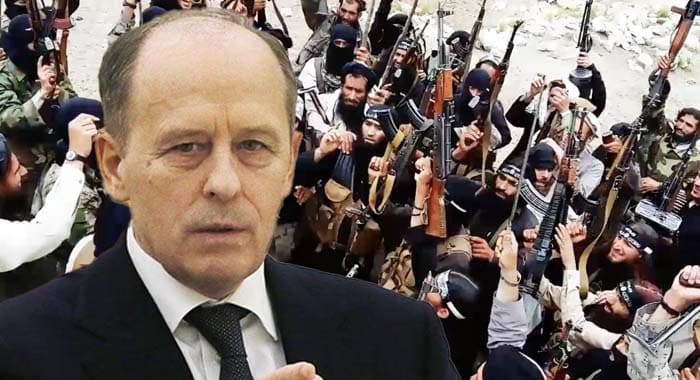While China has welcomed the recent ceasefire between Pakistan and Afghanistan, expressing readiness to play a constructive role in peace-building, Russia has once again raised serious alarms over the growing threat of terrorism emanating from Afghanistan—specifically from the Khorasan branch of the Islamic State (IS-KP).
At the 57th meeting of the Council of Heads of Security and Intelligence Agencies of the Commonwealth of Independent States (CIS) in Uzbekistan, Alexander Bortnikov, the head of Russia’s Federal Security Service (FSB), warned that IS-KP is actively attempting to seize control of Afghanistan’s northern regions and push toward the borders of CIS member states.
“The leaders of ISIS-K have set their immediate goal to dominate northern Afghanistan and gain access to the borders of the Commonwealth,” Bortnikov said, according to Russia’s Interfax news agency on October 14.
A Worsening Threat, Now With Russian Recruits
What makes the situation even more concerning, according to Bortnikov, is the increasing number of Russian citizens joining the ranks of IS-KP. Their presence raises the stakes for Moscow and signals the group’s deeper inroads into the region’s extremist recruitment networks.
Propaganda Expands in Central Asian Languages
Bortnikov highlighted that the group’s online propaganda efforts have sharply intensified, now being pushed in Tajik, Kyrgyz, Uzbek, and for the first time, Kazakh—a sign that IS-KP is no longer limiting itself to Afghanistan or Pakistan, but is actively targeting vulnerable populations across Central Asia.
“In territories under IS-KP influence, recruitment from local communities is ongoing,” he said, adding that the expansion of militant training camps is reportedly taking place with the cooperation of certain foreign intelligence agencies—though he did not name them.
Terrorism as a Tool of Destabilisation
Bortnikov noted that the strengthening of IS-KP serves the interests of some external actors, who see its growth as a way to weaken the Taliban’s control while also creating a persistent security crisis along the southern borders of the CIS.
This line of reasoning echoes recent statements by Russian officials who argue that foreign-backed extremism is being deliberately allowed to flourish in Afghanistan as a form of strategic pressure on regional powers.
ISIS-K’s Broader Agenda: From Kabul to Central Asia
Drawing parallels with the rise of ISIS in the Middle East, Bortnikov warned that ISIS-K is seeking to replicate that model in Central Asia, operating under the same ideology of a “global caliphate.”
“Based on joint intelligence assessments, the group’s terrorist activity targeting Central Asia and Russia is on the rise,” he said.
Narco-Terrorism: The Synthetic Shift
Adding another dimension to the crisis, the FSB chief said that drug traffickers have shifted to producing and transporting synthetic and psychotropic substances, using increasingly sophisticated methods to smuggle them across borders—further destabilizing the region and feeding militant finances.
23,000 Foreign Fighters in Afghanistan
These warnings align with earlier statements by Russian Security Council Secretary Sergei Shoigu, who recently revealed that more than 23,000 foreign militants are currently based in Afghanistan under Taliban control—or at the very least, with their knowledge.
This lends further weight to long-standing accusations that the Taliban have either failed—or refused—to clamp down on transnational terrorist groups operating on Afghan soil, including ISIS-K, Al-Qaeda, and the Tehreek-e-Taliban Pakistan (TTP).
Taliban Denial vs. Ground Reality
While the Taliban have consistently denied harboring such groups, both UN reports and regional intelligence tell a different story. A recent UN Security Council report confirmed that terrorist organisations are operating freely in six Afghan provinces, with training camps hosting both IS-KP and TTP fighters.
The question regional stakeholders now face is simple, yet pressing:
How long can the Taliban continue to deny what the rest of the world increasingly accepts as fact?





